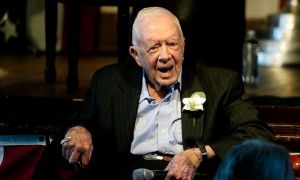
In the global geopolitical landscape, Russia has always been a formidable force, adept at leveraging its vast natural resources, strategic positioning, and historical legacy. In recent years, Moscow has increasingly asserted itself on the international stage, deploying a range of political, economic, and military strategies to expand its influence not only in Europe but also in regions far beyond its traditional sphere of control.
Russia employs to project power and maintain relevance, emphasizing its strategic maneuvers that shape international relations. Russia’s current actions requires a look at its historical context. Since the collapse of the Soviet Union in 1991, Russia has sought to re-establish its status as a great power.
The desire to regain lost influence drives much of its foreign policy. Moscow’s current strategies reflect a combination of Soviet-era tactics and new methods, all designed to secure its borders, maintain regional dominance, and counterbalance the influence of NATO and the European Union.
Economic Leverage Through Energy Resources
One of Russia’s most potent tools for influence is its control over vast natural resources, particularly oil and gas. As a major supplier of energy to Europe, Russia has the ability to use its energy exports as both a carrot and a stick, securing favorable terms with countries reliant on its supplies while threatening to cut off resources to those that oppose its policies. This was evident during the Ukrainian gas disputes in the 2000s, where Russia’s state-owned company Gazprom played a crucial role in asserting Moscow’s dominance.
Political Influence and Hybrid Warfare
In addition to economic tools, Russia has employed hybrid warfare to expand its influence. This strategy includes a mix of political manipulation, cyber attacks, disinformation campaigns, and covert military operations. The interference in the 2016 U.S. presidential elections and the annexation of Crimea in 2014 serve as prominent examples. These actions are designed to create confusion, destabilize adversaries, and create an environment in which Russia’s strategic goals can be achieved without the need for open conflict.
Role of Military Modernization
A critical component of Russia’s strategy is its ongoing military modernization program. Russia has significantly invested in upgrading its military capabilities, including the development of advanced missile systems, cyber warfare tools, and nuclear capabilities. The display of military might, such as large-scale military exercises near the borders of NATO countries, serves both as a deterrent and as a demonstration of power, reminding the world of Russia’s military prowess.
Alliances and Strategic Partnerships
Russia’s expansionist maneuvers are also facilitated through strategic alliances and partnerships. The country has fostered relationships with nations that share its skepticism of Western dominance. Key alliances include those with China, Iran, and Turkey, which provide Russia with economic opportunities and political support. These partnerships are often characterized by mutual benefits, such as arms sales, energy projects, and diplomatic backing in international forums.
Influence in Middle East and Africa
Beyond Europe, Russia has actively sought to expand its influence in the Middle East and Africa. In Syria, Russia’s military intervention in support of Bashar al-Assad has not only preserved a key ally but also secured Russia’s naval presence in the Mediterranean. In Africa, Russia has pursued economic ties, mining deals, and military cooperation, aiming to fill the void left by Western countries. These moves increase Russia’s geopolitical footprint and provide access to valuable resources.
Information Warfare and Soft Power
Russia’s approach to influence is not confined to hard power. The country also invests heavily in information warfare and soft power to shape global narratives. Russian state media, such as RT and Sputnik, broadcast messages that often contradict Western media perspectives, promoting pro-Russian viewpoints. Cultural exchanges, propaganda, and the promotion of Russian language and culture are also part of its soft power arsenal, aiming to win hearts and minds in target regions.
Impact on European Security
Russia’s maneuvers have significant implications for European security. NATO has responded by bolstering its eastern defenses and conducting regular military exercises. However, European countries remain divided over how to handle Russia, balancing the need for security with economic interests. Countries like Germany, heavily dependent on Russian gas, often find themselves in a complex situation. Russia’s actions have thus exposed rifts within the European Union and NATO, complicating the formulation of a unified response
Russia’s strategic maneuvers reflect a comprehensive approach to asserting its influence in Europe and beyond. By leveraging a combination of economic power, military might, alliances, and information warfare, Moscow seeks to position itself as a counterbalance to Western influence. As Russia continues to expand its reach, understanding its tactics and preparing for future challenges becomes increasingly critical for nations that value stability and democratic values. The world must recognize that Russia’s influence is not merely a resurgence of old ambitions but a sophisticated blend of traditional and modern strategies designed to shape the global order in Moscow’s favor.






